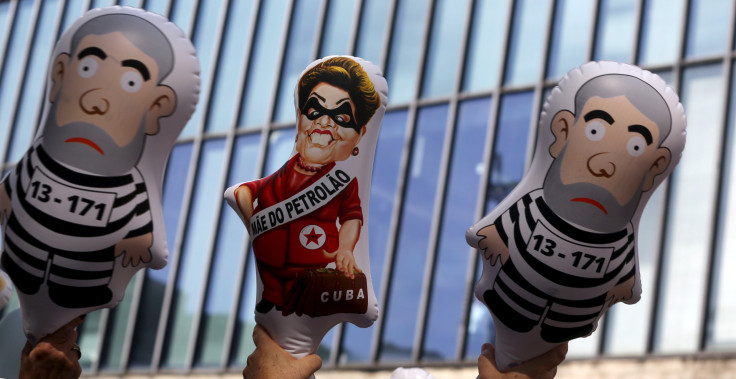Brazil Corruption Scandal Update: Former President Lula Prepares For Graft Probe Testimony

During Brazil’s annual carnival earlier this week, former President Luiz Inácio Lula da Silva found himself the center of attention, as some demonstrators paraded around floats with the politician portrayed in a back-and-white pinstriped jail outfit, the Financial Times reported Sunday. The once popular, now disgraced former leader has been unable to shake off corruption allegations that have tarnished his political legacy and have crept ever-nearer to his close family circle.
Silva's left-wing Workers’ Party was credited with lifting some 20 million Brazilians out of dire poverty through wage increases and social benefits. He left office in 2010 with 90 percent approval ratings. But allegations surfaced last year that his government accepted under-the-table favors from construction companies in exchange for contracts with Petrobras, the official oil company, opening a massive graft probe into current and past politicians.
Silva and his wife Marisa are set to appear before a public prosecutor Wednesday to offer testimony related to some of the allegations. Lawyers for the former leader have lambasted the charges against him as part of a smear campaign, but Wednesday he will be asked to address the claims directly — including at least one accusation related to a personal oceanfront apartment that was allegedly renovated by the construction company.
The charges have spread far and wide. A growing list of businessmen and government officials have come under investigation and faced arrest in recent months. The country’s former treasurer, João Vaccari Neto, was sentenced to 15 years and four months in jail for corruption and money laundering in September. Silva's successor, President Dilma Rousseff, was facing a parliamentary investigation but was cleared late last year.
With elections around the corner, it could be a disastrous year for the Workers’ Party, which was largely built around Silva's popularity. A January poll from the Eurasia Group, cited in the Financial Times, found that just a quarter of Brazilians said they believe Silva to be an honest politician, and nearly 70 percent said he was “as corrupt as other politicians.” Silva has accused conservatives of launching an attack against his party.
© Copyright IBTimes 2025. All rights reserved.






















